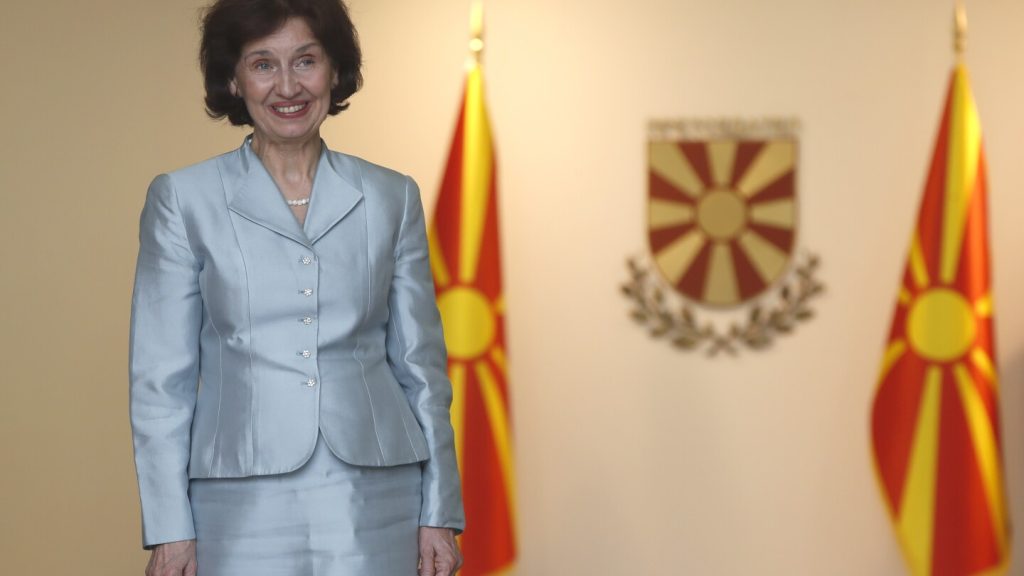Gordana Siljanovska-Davkova was sworn in as the first female president of North Macedonia, sparking a diplomatic dispute with neighboring Greece. During her inauguration ceremony, she referred to the country as “Macedonia” instead of the constitutional name “North Macedonia,” causing the Greek Ambassador to leave. The Greek Foreign Ministry later issued a statement expressing concerns about the violation of agreements between the two nations and the impact on bilateral relations and North Macedonia’s EU prospects. European Commission President Ursula von der Leyen also emphasized the importance of respecting binding agreements like the Prespa Agreement.
The use of the name “Macedonia” reignited tensions with Greece, which has accused its northern neighbor of appropriating Greek history. The long-standing dispute was resolved in 2018 with the adoption of the constitutional name “North Macedonia,” leading to Greece lifting its objections to North Macedonia’s NATO membership and EU application. However, the center-right opposition, to which Siljanovska-Davkova belongs, opposed the agreement signed by the center-left North Macedonian government.
Siljanovska-Davkova, the sixth president since North Macedonia’s independence in 1991, emphasized unity in her acceptance speech, pledging to represent all citizens and justify the trust placed in her through the recent elections. She highlighted the role of women in society and vowed to “feminize” and “Europeanize” the country, urging male politicians to also embrace change. The handoff ceremony took place at the President’s official residence after her swearing-in at the parliament.
The newly inaugurated president, a member of the center-right coalition led by VMRO-DPMNE, defeated the incumbent president Stevo Pendarovski in the recent runoff election with 69% of the votes. Despite concerns about voter turnout, which reached 47.47%, the election was deemed valid, avoiding the need for a repeat vote. Siljanovska-Davkova’s victory comes at a critical time for North Macedonia as the country continues its path toward EU membership and implements necessary reforms.
Siljanovska-Davkova’s presidency represents a shift in North Macedonia’s political landscape, with the opposition claiming victory in both presidential and parliamentary elections. Her focus on women’s empowerment and unity signals potential changes in the country’s leadership style and priorities. The diplomatic tensions with Greece add a layer of complexity to her presidency, emphasizing the need for careful navigation of international relations while pursuing domestic reforms.Overall, Siljanovska-Davkova’s presidency marks a new chapter for North Macedonia, with hopes for progress in both domestic governance and international relations under her leadership.


